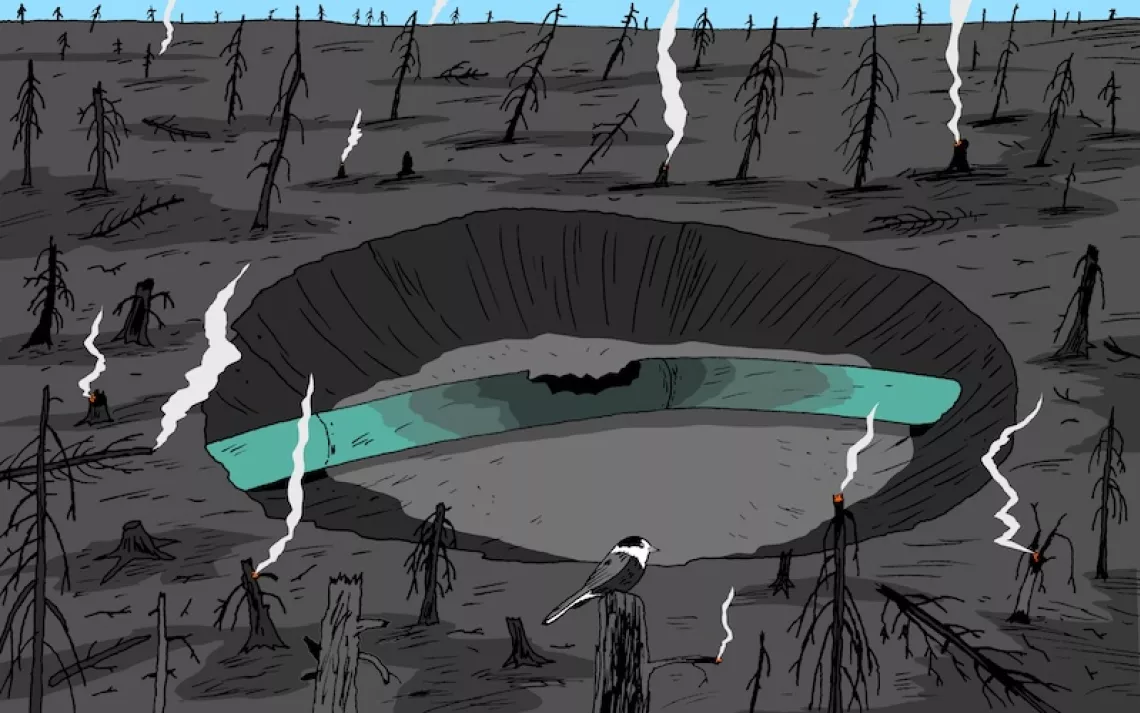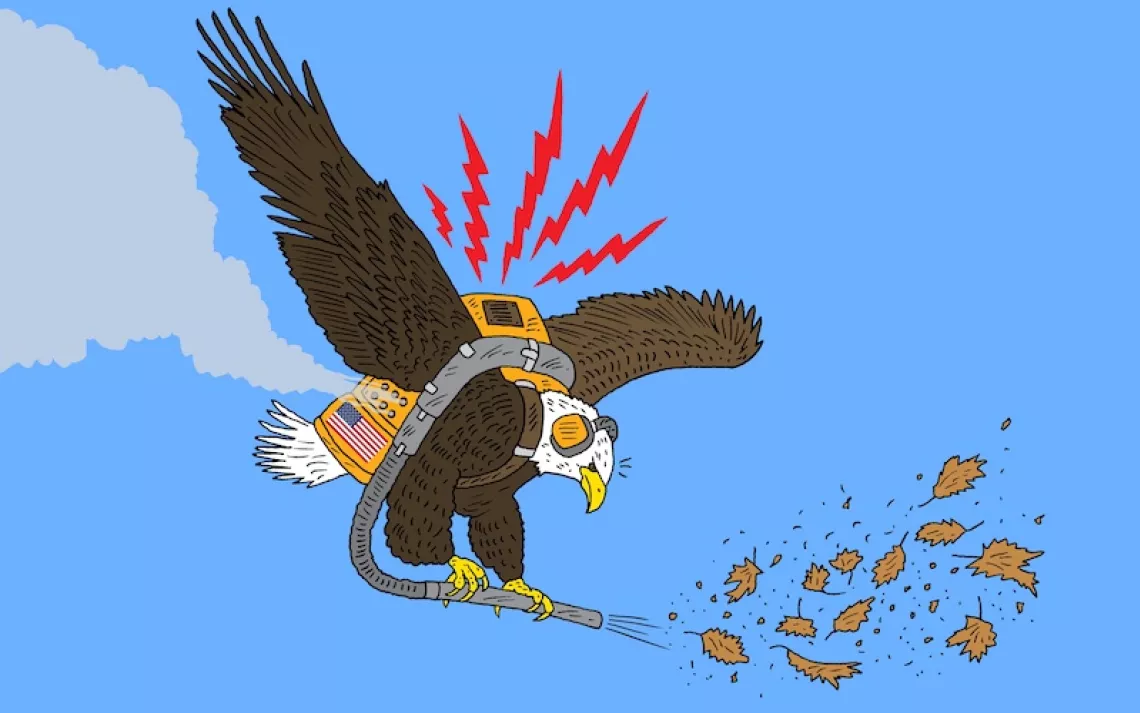ICYMI: Scott Pruitt Resigns, Spiders Go Electric, & More
A weekly roundup for busy people

Illustration by Peter Arkle
On Thursday, embattled EPA administrator Scott Pruitt resigned via a long, sentimental letter to the president (sample quote: "My desire in service to you has always been to bless you as you make important decisions for the American people”). Pruitt will be be replaced by longtime Pruitt wannabe Andrew Wheeler starting this Monday.
Among this week's round of Pruitt scandals and incidents:
He kept a secret calendar in order to hide meetings with controversial figures like oil and gas executives, according to Kevin Chmielewski, a Trump appointee who is Pruitt's former deputy chief of staff for operations.
Newly released FOIA documents reveal that Scott Pruitt’s official email has been so sparse because he’s been sending sweet, handwritten notes to oil and gas executives.
By the way, the EPA’s FOIA requests are being handled by the former treasurer of Pruitt’s political action committee, Liberty 2.0.
Pruitt and his security team leave a D.C.-area tea house on Monday after being confronted by a woman and her toddler for slashing fuel standards for cars and trucks, among other things.
In other news . . .
An assortment of high-powered weapons, shoes, and body parts found in a South African wildlife reserve leads officials to conclude that three poachers who broke into the reserve to hunt rhinos were eaten by a pride of lions.
Ireland, Scotland, Canada, Siberia, Armenia, Oman, and much of the eastern United States set all-time heat records.
An international team of scientists announced the first successful rhino embryos created via in vitro fertilization. This raises the hope of adding genetic diversity back to nearly extinct rhino species around the world like the northern white, which is down to two sisters.
Urbanization combined with a dwindling population means that bears are moving into rural towns in Japan.
Fugitive emissions from oil and gas drilling is making night-shining (a.k.a. “noctilucent”) clouds more visible, because methane increases the proportion of water vapor in the atmosphere.
About 14 percent of diabetes cases around the world are attributable to air pollution, a new study finds, because air pollution leads to inflammation, which leads to insulin resistance.
If you make it to 105 years old, you’ll probably make it to 110, a new study finds.
The pre-colonial dogs of the North American continent are completely extinct, but some of their DNA lives on in a doggy STD.
The Democratic Republic of Congo is considering oil exploration in two protected wildlife parks, Virunga and Salonga. The parks, which are both UNESCO World Heritage Sites, are home to bush elephants, mountain gorillas, and the legendarily amorous bonobo ape.
The Royal Observatory in Greenwich, UK, is reopening more than 60 years after London’s smog forced it to close in 1957. It has been outfitted with a new telescope named after Annie Maunder, one of the first female scientists to work at the observatory.
Spiders can sense Earth’s electric field and use it to fly for hundreds of miles.
 The Magazine of The Sierra Club
The Magazine of The Sierra Club







